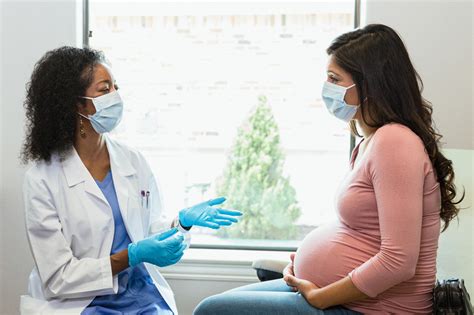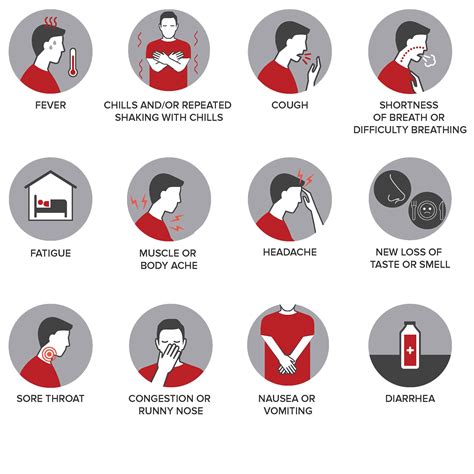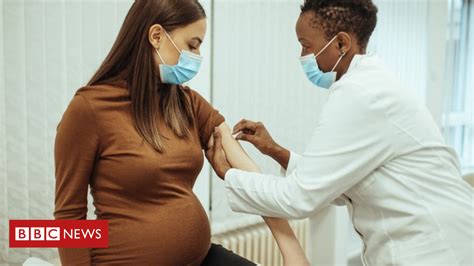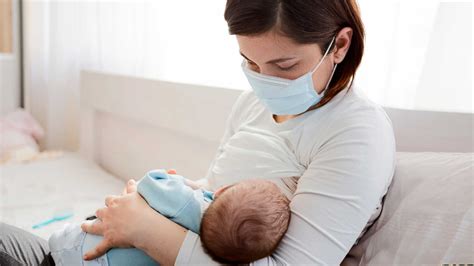Intro
Discover Covids impact on pregnancy, including risks, complications, and maternal health concerns, to ensure a safe and informed prenatal experience during the pandemic.
The COVID-19 pandemic has brought about a multitude of challenges for individuals across the globe, with pregnant women being among the most vulnerable populations. As the virus continues to evolve and spread, it is essential to understand the risks associated with COVID-19 and pregnancy. Expectant mothers are naturally concerned about the potential impact of the virus on their health and the health of their unborn babies. In this article, we will delve into the latest research and findings on COVID-19 and pregnancy risks, providing valuable insights and information for pregnant women and their healthcare providers.
Pregnancy is a unique and delicate state, where the body undergoes significant changes to support the growth and development of the fetus. The immune system is suppressed during pregnancy, making expectant mothers more susceptible to infections, including COVID-19. Furthermore, pregnancy complications, such as preeclampsia and gestational diabetes, can increase the risk of severe illness from COVID-19. It is crucial for pregnant women to take necessary precautions to minimize their exposure to the virus and to seek medical attention immediately if they experience any symptoms.
The COVID-19 pandemic has also highlighted the importance of prenatal care and monitoring. Regular check-ups with healthcare providers can help identify potential complications early on, allowing for prompt intervention and treatment. Moreover, pregnant women should stay informed about the latest developments and guidelines related to COVID-19 and pregnancy, following reputable sources, such as the Centers for Disease Control and Prevention (CDC) and the World Health Organization (WHO).
Covid-19 And Pregnancy Risks Overview

The relationship between COVID-19 and pregnancy risks is complex and multifaceted. Research has shown that pregnant women with COVID-19 are at a higher risk of developing severe illness, including pneumonia, acute respiratory distress syndrome (ARDS), and death. Additionally, COVID-19 has been linked to an increased risk of preterm birth, low birth weight, and stillbirth. It is essential for pregnant women to understand these risks and take proactive steps to protect themselves and their unborn babies.
Transmission Of Covid-19 During Pregnancy
The transmission of COVID-19 during pregnancy is a critical concern. Studies have shown that the virus can be transmitted from mother to fetus during pregnancy, although the exact mechanisms and risks are still being researched. Vertical transmission, which occurs when the virus is passed from mother to fetus during pregnancy or childbirth, is a significant concern. Pregnant women should take necessary precautions to minimize their exposure to the virus, including practicing social distancing, wearing masks, and following proper hygiene protocols.Covid-19 Symptoms And Pregnancy

COVID-19 symptoms can be similar to those experienced during pregnancy, making it challenging for expectant mothers to distinguish between the two. Common symptoms of COVID-19 include fever, cough, shortness of breath, and fatigue. Pregnant women should be aware of these symptoms and seek medical attention immediately if they experience any of them. It is also essential for healthcare providers to be vigilant in monitoring pregnant women for COVID-19 symptoms, as prompt diagnosis and treatment can significantly improve outcomes.
Pregnancy Complications And Covid-19
Pregnancy complications, such as preeclampsia and gestational diabetes, can increase the risk of severe illness from COVID-19. Expectant mothers with pre-existing medical conditions should take extra precautions to protect themselves and their unborn babies. Regular prenatal care and monitoring can help identify potential complications early on, allowing for prompt intervention and treatment. Additionally, pregnant women with underlying medical conditions should follow the advice of their healthcare providers and take necessary steps to manage their conditions effectively.Covid-19 Vaccination And Pregnancy

The COVID-19 vaccination has been a crucial tool in preventing the spread of the virus and protecting vulnerable populations, including pregnant women. The CDC and WHO recommend that pregnant women receive the COVID-19 vaccine, as the benefits of vaccination outweigh the risks. However, it is essential for expectant mothers to discuss the risks and benefits of vaccination with their healthcare providers, as individual circumstances may vary. Pregnant women should also be aware of the potential side effects of the vaccine and report any concerns or symptoms to their healthcare providers promptly.
Postpartum Care And Covid-19
Postpartum care is critical for new mothers, particularly those who have been diagnosed with COVID-19. The postpartum period can be a vulnerable time for new mothers, as they may be at a higher risk of developing complications, such as postpartum hemorrhage and infection. Healthcare providers should be vigilant in monitoring new mothers for COVID-19 symptoms and provide prompt treatment and support as needed. Additionally, new mothers should follow the advice of their healthcare providers and take necessary precautions to protect themselves and their newborn babies from COVID-19.Covid-19 And Breastfeeding

The relationship between COVID-19 and breastfeeding is complex and has been the subject of much debate. The WHO recommends that mothers with COVID-19 continue to breastfeed, as the benefits of breastfeeding outweigh the risks of transmission. However, mothers with COVID-19 should take necessary precautions to minimize the risk of transmission to their newborn babies, such as wearing masks and practicing proper hygiene protocols. Additionally, mothers who are experiencing COVID-19 symptoms should seek medical attention immediately and follow the advice of their healthcare providers.
Covid-19 And Newborn Care
Newborn care is critical for babies born to mothers with COVID-19. Healthcare providers should be vigilant in monitoring newborns for COVID-19 symptoms and provide prompt treatment and support as needed. Additionally, newborns should be kept separate from their mothers until the risk of transmission has passed, and mothers should follow the advice of their healthcare providers regarding newborn care and feeding.Covid-19 And Pregnancy Mental Health

The COVID-19 pandemic has had a significant impact on mental health, particularly for pregnant women. Expectant mothers may experience increased stress, anxiety, and depression due to the uncertainty and fear surrounding the pandemic. It is essential for pregnant women to prioritize their mental health and seek support from healthcare providers, family, and friends. Additionally, healthcare providers should be aware of the potential mental health impacts of COVID-19 on pregnant women and provide prompt support and treatment as needed.
Pregnancy And Covid-19 Support
Pregnant women require comprehensive support and care during the COVID-19 pandemic. Healthcare providers should be aware of the unique needs and challenges faced by expectant mothers and provide personalized care and support. Additionally, pregnant women should stay informed about the latest developments and guidelines related to COVID-19 and pregnancy, following reputable sources, such as the CDC and WHO.What are the risks of COVID-19 for pregnant women?
+Pregnant women with COVID-19 are at a higher risk of developing severe illness, including pneumonia, acute respiratory distress syndrome (ARDS), and death. Additionally, COVID-19 has been linked to an increased risk of preterm birth, low birth weight, and stillbirth.
Can COVID-19 be transmitted from mother to fetus during pregnancy?
+Yes, COVID-19 can be transmitted from mother to fetus during pregnancy, although the exact mechanisms and risks are still being researched. Vertical transmission, which occurs when the virus is passed from mother to fetus during pregnancy or childbirth, is a significant concern.
What are the symptoms of COVID-19 in pregnant women?
+Common symptoms of COVID-19 in pregnant women include fever, cough, shortness of breath, and fatigue. Pregnant women should be aware of these symptoms and seek medical attention immediately if they experience any of them.
Is the COVID-19 vaccine safe for pregnant women?
+The CDC and WHO recommend that pregnant women receive the COVID-19 vaccine, as the benefits of vaccination outweigh the risks. However, it is essential for expectant mothers to discuss the risks and benefits of vaccination with their healthcare providers, as individual circumstances may vary.
Can breastfeeding mothers transmit COVID-19 to their newborn babies?
+The WHO recommends that mothers with COVID-19 continue to breastfeed, as the benefits of breastfeeding outweigh the risks of transmission. However, mothers with COVID-19 should take necessary precautions to minimize the risk of transmission to their newborn babies, such as wearing masks and practicing proper hygiene protocols.
In conclusion, the COVID-19 pandemic has presented significant challenges for pregnant women, highlighting the importance of prenatal care, monitoring, and support. Expectant mothers should stay informed about the latest developments and guidelines related to COVID-19 and pregnancy, following reputable sources, such as the CDC and WHO. By prioritizing their health and well-being, pregnant women can minimize their risk of COVID-19 complications and ensure a healthy pregnancy and birth. We invite readers to share their thoughts and experiences on COVID-19 and pregnancy, and to take proactive steps to protect themselves and their loved ones from the virus.
